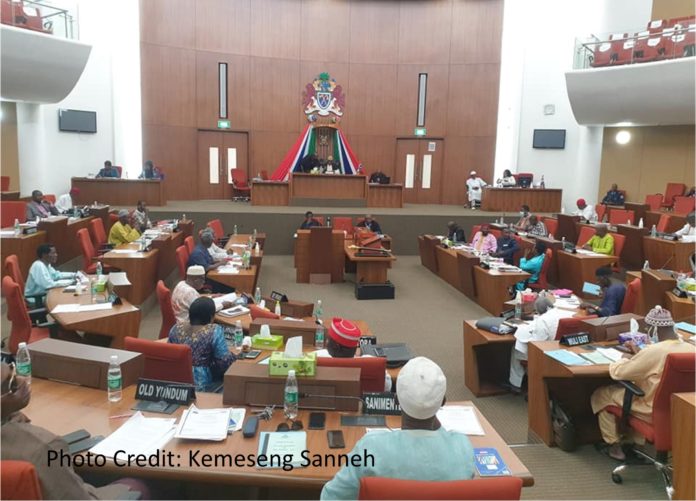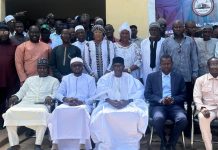By: Kebba AF Touray
The Gambian Parliament, on Monday 6th December 2020, debated on the Appropriation Bill 2021.
The debate was aimed at paving way for members of Parliament to make recommendations on the said bill.
Ousman Sillah, member for Banjul North, hailed the Finance Minister, for fulfilling his constitutional mandate to prepare and table the said bill before the legislature.
He called on the government to invest in GAMTEL and GAMCEL, to ensure sustainability, quality service delivery and safe the aforesaid body from dying.
He added: “The salaries of the healthcare workers need to be increased. This will encourage them to strengthen their dedication to quality and effective health service delivery in the country”.
He also called on the government to invest in agriculture and other revenue generating sectors, to help reduce the huge budget deficit and strengthen economic growth and recovery.
Fatoumatta Njie, Member for Banjul South, said the Minister stated that the overall fiscal deficit, excluding grants, has increased by nine percent, from D5.5 billion in the first nine months to D6 billion in the same period in 2020.
She said the Minister indicated that the increase in the deficit is due to the significant increase in expenditure.
She said: “high deficit in the Budget is good if it can be spent into the creation of the productive assets that boost economic growth and sustain job creation hence economic enhancement”.
She said: “But I would also prefer to really maintain it(budget deficit) below 4 percent. We all know that 2020 is an extraordinary year, hence we expect 2021 to be a very difficult year and we should be completely different in terms of how we transact”.
Bakary Camara, Member for Kiang Central said: “in order to guarantee food security, we need to invest in the reproductive sector, because relying on importation of food is not sustainable”.
He also stressed the need for the government to redouble its efforts to provide an average Gambian with safe and clean drinking water, adding that water is a necessity, without which there will be no life.
He also called on the government to review the salaries of civil servants with a view to allocate them with good salaries for them to deliver as expected of them.
Suwaibou Touray, Member for Wuli East said: “we want to wage an economic revolution and if we want to wage an economic revolution, manufacturing must be at the core of our plans so as to attain economic growth,” adding that manufacturing is the driver to productivity, growth and innovation”.
He also reminded the Minister of the 18.5 million Fire Service Station in Bajakunda, which he said is still not completed, adding that it should have been completed two years ago.
He said: “As you go through this budget, there is no allocation where this completion is going to come. So we need to monitor government projects, to trace the budget cost of the projects”.
He added: “This would ensure that we are not just establishing white elephant structures that would get rotten in those places, and we should be tracking the budget cost of the said projects, because without tracking project budgets, I don’t see how we can ensure that the right amount of resources are spent on them to ascertain whether we are meeting the right priorities”.
Saikou Marong, member for Latrikunda, while supporting the need to support the health sector, called on the healthcare givers to attend to patients on time.
He also recommended the need to have projects for students in academic institutions, as this will help provide skills for the young people, and would go a long way in curbing irregular migration.
Omar Ceesay, Member for Niamina East, called for the need to have Ministers to be present during sessions, so that they can provide concrete answers to issues that lawmakers would raise.
He decried: “The school in Niamina East, does not have furniture, compelling students to sit on mats on the floor. There is need to support the Education Ministry to for them to provide furniture for the school”.
He also recommended for the inclusion of young people in the productive sector and be trained to acquire production skills.



















